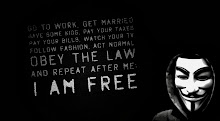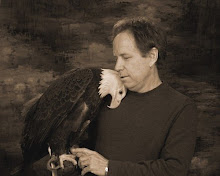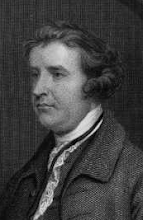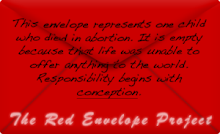Tuesday, May 12, 2009
The U.N. Convention on the "Rights of the Child"
U.N. Treaty Limiting Parents' Rights Pushed
Tags: parents rights, UN, united nations
March 19, 2009 7:05 AM 1 Comment No TrackBacks
E-mail Print Comments RSS
California Democratic Sen. Barbara Boxer has caused growing concern by encouraging the United States to ratify a United Nations treaty that would allow for what critics describe as government intrusion in parents' lives.
The treaty is known as the U.N. Convention on the Rights of the Child.
"[The treaty] treats children as autonomous beings," said Wendy Wright, president of Concerned Women for America (CWA), "and restricts parents by negating parental rights."
The treaty calls for a child to grow up in a "family environment, in an atmosphere of happiness, love and understanding," according to the treaty's preamble. Establishing the treaty as binding in the United States would allow Congress to hold ultimate authority over minors, according to Concerned Women for America, and as a result, many legal issues could arise among American families. For instance, spanking could be considered abuse under the treaty, critics say.
Although the nearly 20-year-old U.N. treaty has been accepted by all countries except the U.S. and Somalia, it is seen as a dead issue in America at this time. The treaty would be unlikely to gain approval because it would require two-thirds of the Senate's support for ratification under the U.S. Constitution.
Boxer said she hopes the treaty will provide for and expand children's rights.
"Children deserve basic human rights ... and the convention protects children's rights by setting some standards here so that the most vulnerable people of society will be protected," Boxer said in a statement to Fox News.
Parental Rights, an organization based in northern Virginia that operates to protect child-parent relationships, has also expressed its concern about the treaty. According to Parental Rights, under the treaty:
-- Parents could no longer discipline their children with spankings.
-- Parents would no longer have authority over their child's religion.
-- The government would have primary authority to override every parental decision.
-- Christian schools would be pushed to teach "alternative worldviews."
-- Parents could not opt their children out of sex education.
-- Children would not need parental consent for abortions.
The treaty was written prior to the creation of the Internet. Wright said the treaty could guarantee that children have access to the Internet, even if their parents think differently. She pointed to a story out of Canada last year in which a Canadian court ruled a father did not have the right to ground his daughter from a school trip. The 12-year-old girl had been grounded for posting photos of herself on an Internet dating site.
"With the Internet, it's a whole other game," said Wright.
But the substance of the treaty is not the only concern from critics. After a treaty is signed, it requires a committee to oversee and enforce the treaty. The committee then suggests what a country needs to do in compliance. CWA has been critical of not only the Convention on the Rights of the Child but also on The Convention on the Elimination on All Forms of Discrimination against Women (CEDAW).
The U.N. Committee on CEDAW has gone beyond what is necessary to enforce the treaty in countries that have ratified it, consistently interfering with cultural, legal and personal issues in countries, Concerned Women for America reported. Some countries had to change all of their textbooks and teachings, CWA said.
"There are outrageous things from the committee that the countries must do," Wright said.
Source: Baptist Press
Tags: parents rights, UN, united nations
March 19, 2009 7:05 AM 1 Comment No TrackBacks
E-mail Print Comments RSS
California Democratic Sen. Barbara Boxer has caused growing concern by encouraging the United States to ratify a United Nations treaty that would allow for what critics describe as government intrusion in parents' lives.
The treaty is known as the U.N. Convention on the Rights of the Child.
"[The treaty] treats children as autonomous beings," said Wendy Wright, president of Concerned Women for America (CWA), "and restricts parents by negating parental rights."
The treaty calls for a child to grow up in a "family environment, in an atmosphere of happiness, love and understanding," according to the treaty's preamble. Establishing the treaty as binding in the United States would allow Congress to hold ultimate authority over minors, according to Concerned Women for America, and as a result, many legal issues could arise among American families. For instance, spanking could be considered abuse under the treaty, critics say.
Although the nearly 20-year-old U.N. treaty has been accepted by all countries except the U.S. and Somalia, it is seen as a dead issue in America at this time. The treaty would be unlikely to gain approval because it would require two-thirds of the Senate's support for ratification under the U.S. Constitution.
Boxer said she hopes the treaty will provide for and expand children's rights.
"Children deserve basic human rights ... and the convention protects children's rights by setting some standards here so that the most vulnerable people of society will be protected," Boxer said in a statement to Fox News.
Parental Rights, an organization based in northern Virginia that operates to protect child-parent relationships, has also expressed its concern about the treaty. According to Parental Rights, under the treaty:
-- Parents could no longer discipline their children with spankings.
-- Parents would no longer have authority over their child's religion.
-- The government would have primary authority to override every parental decision.
-- Christian schools would be pushed to teach "alternative worldviews."
-- Parents could not opt their children out of sex education.
-- Children would not need parental consent for abortions.
The treaty was written prior to the creation of the Internet. Wright said the treaty could guarantee that children have access to the Internet, even if their parents think differently. She pointed to a story out of Canada last year in which a Canadian court ruled a father did not have the right to ground his daughter from a school trip. The 12-year-old girl had been grounded for posting photos of herself on an Internet dating site.
"With the Internet, it's a whole other game," said Wright.
But the substance of the treaty is not the only concern from critics. After a treaty is signed, it requires a committee to oversee and enforce the treaty. The committee then suggests what a country needs to do in compliance. CWA has been critical of not only the Convention on the Rights of the Child but also on The Convention on the Elimination on All Forms of Discrimination against Women (CEDAW).
The U.N. Committee on CEDAW has gone beyond what is necessary to enforce the treaty in countries that have ratified it, consistently interfering with cultural, legal and personal issues in countries, Concerned Women for America reported. Some countries had to change all of their textbooks and teachings, CWA said.
"There are outrageous things from the committee that the countries must do," Wright said.
Source: Baptist Press
Labels:
Eye on Congress
Subscribe to:
Post Comments (Atom)













































No comments:
Post a Comment